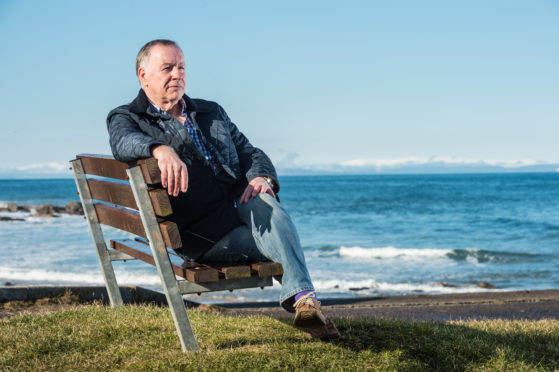A Moray whisky worker diagnosed with an incurable genetic disease has set up a group to support others with the illness.
Brian Watt, from Hopeman, was told by doctors two years ago that he has the deadly Huntington’s gene.
The degenerative neurological condition claimed the life of his father 30 years ago and is now at risk of being passed on to the 62-year-old’s four children and four grandchildren.
Mr Watt, who has worked in the whisky industry for 36 years, has now decided to take early retirement and wants to start a support group for people with the defective genes and their families after learning the north-east is a “hot spot” for the disease.
He said: “You go through quite a lot of counselling before you get the test, because it has a drastic effect on your life now and in the future. I went through about six months.
“Since then I’ve had the chance to think about my own life, and what I want to do in the early part of my retirement.
“A lot of people are embarrassed about Huntington’s. It’s good to speak though, everybody’s experiences are different and you can learn from each other.”
Huntington’s results in the gradual deterioration of movement and speech over time and is usually fatal about 20 years after the symptoms, which can also affect personality, start.
It is currently estimated that about 1,100 currently live with the condition in Scotland, with the north-east having the highest rate of diagnoses. However, up to 6,000 more could be at risk.
Mr Watt added: “There’s obviously a lot of anxiety living with the chance of having it, that’s why it’s not just for people who have been diagnosed. There’s been encouraging research recently so a group’s the best way to discuss that too.”
Isobel Darroch, family group coordinator for the Scottish Huntington’s Association, said: “There has been a steady increase in the number of approaches we have had from Huntington’s families in the Moray area.
“Setting up a new support group here seemed like an obvious way of reaching out.
“It can be a very isolating disease. Getting involved in a support group is a way of learning from others and sharing knowledge can often make a huge difference to the way they cope.”
The support group will meet at 2pm on Friday, March 16 at The Inkwell in Elgin.
